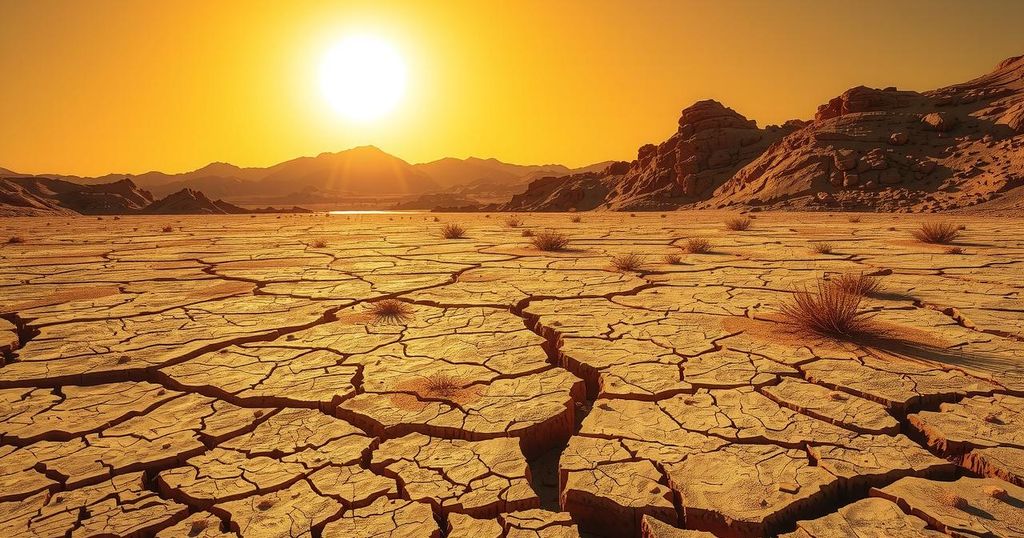A study reveals that climate change has increased the likelihood of heatwaves in South Sudan, impacting women and girls disproportionately. The country’s political instability compounds environmental challenges, with temperatures reaching 40 degrees Celsius in February. As women struggle with outdoor labor, the frequency of extreme heat events is expected to rise, raising concerns for future challenges.
A recent study indicates that climate change has heightened the likelihood of heatwaves in South Sudan, disproportionately impacting women and girls. The country, facing ongoing instability and insecurity since its independence in 2011, lacks the resources to address such environmental crises. This latest heatwave exacerbates fears regarding a potential collapse of a critical peace agreement from 2018 that ended a brutal civil war.
In February, temperatures soared to 40 degrees Celsius (104 degrees Fahrenheit) in certain regions of South Sudan, prompting the government to close schools in the capital, Juba, due to health concerns. The authorities reported that an average of twelve students were collapsing daily in the capital. As a result of these conditions, citizens were advised to stay at home to avoid the extreme heat.
The World Weather Attribution study reveals that climate change has made the recent extreme heat events at least 2 degrees Celsius hotter and ten times more likely. Kiswendsida Guigma, contributing author and climate scientist with the Red Cross, expressed that these conditions complicate the already dire economic situations in South Sudan.
Many individuals are compelled to work outdoors in a climate where most homes lack insulation or air conditioning. Moreover, the World Bank reported that access to drinking water remains limited, with electricity access at only 8.4% in 2022. Women and girls bear the brunt of daily chores, such as collecting water, which exposes them to these extreme temperatures.
Elizabeth Lodou Lochapio from Kapoeta highlighted the struggles women face to earn a living amidst the oppressive heat. She noted, “When the sun was at its hottest… I don’t move, I make sure that I stay in one place.” Sarah Kew, a researcher involved in the study, stated that extreme heat events have shifted from rare occurrences to a “new normal,” now happening every two years, compounding the challenges faced by the population of South Sudan. High temperatures are projected to continue throughout March.
The findings underscore the severe implications of climate change in South Sudan, especially for vulnerable populations such as women and girls. As extreme heat becomes increasingly common, the country must confront the complex interplay of environmental change and socio-political instability. Urgent action is needed to mitigate these challenges and support affected communities in adapting to new climatic realities.
Original Source: www.france24.com




